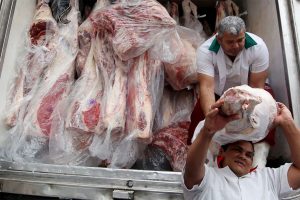THE British Chamber of Commerce Philippines (BCCP) said the government needs to distribute the minimum access volume (MAV) allocations to traders, warning of disruptions to the supply of goods and the prospect that these might stoke inflation.
“Having encountered a similar issue last year, concerns over the delay have grown, potentially affecting the country’s supply and inflation,” BCCP Executive Director Chris Nelson said in a statement on Monday.
The MAV system is part of the country’s commitment to the World Trade Organization. The system sets import quotas for agricultural products entering the Philippines, within which such shipments pay reduced tariffs.
“MAV… should have been distributed at the beginning of the year — they have not been,” Mr. Nelson said.
“There is some discussion that they want to limit those MAV to processors. We would urge them to go back to the original system, which is to issue it straightforwardly. We do not want to see disruptions in supply,” he added.
He said that the original system has benefited both the UK and the Philippines and has assisted in lowering prices.
He also added that with the original system, Executive Order No. 62 is also in place to help augment supply and manage inflationary pressures.
“The pig herds have been affected by African Swine Fever (ASF), and the exports of British pork, along with other areas, keep down those prices,” he said.
Citing the Bureau of Animal Industry, the BCCP said that ASF continues to be active in nine regions, 15 provinces, 40 municipalities, and 130 barangays as of Jan. 31.
“(This) necessitates supply and demand for meat importers,” Mr. Nelson said.
Last week, the Department of Agriculture said that it is looking at imposing a maximum suggested retail price for pork, citing a gap of about P100 between the farmgate prices of P240 and P250 per kilo and the market prices of P380 to P420 per kilo. — Justine Irish D. Tabile
